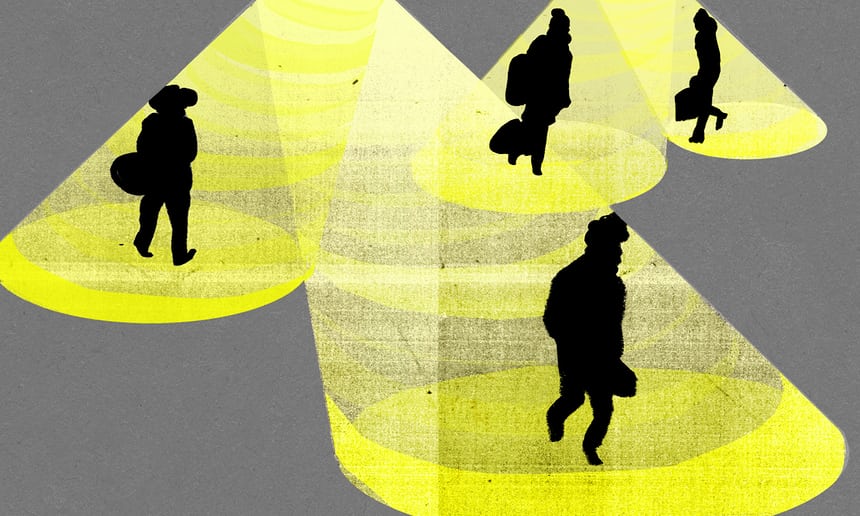 On Monday November 5, ICLMG National Coordinator, Tim McSorley, appeared in front of the Senate Standing Committee on National Security and Defence regarding Bill C-21, an Act to Amend the Customs Act, which allows the sharing of Canadian travelers’ exit data between the US and Canada. In short, we told the Senate Commitee:
On Monday November 5, ICLMG National Coordinator, Tim McSorley, appeared in front of the Senate Standing Committee on National Security and Defence regarding Bill C-21, an Act to Amend the Customs Act, which allows the sharing of Canadian travelers’ exit data between the US and Canada. In short, we told the Senate Commitee:
We believe the best solution would be to not collect travelers’ data en-masse, since restrictions in C-21 could be negated by powers granted in other legislation. Instead, we believe that security agencies should focus efforts on improving data collection on an as-needed basis. We therefore are opposed to the provisions of Bill C-21 that would lead to the default collection of all travelers’ information by the CBSA.
Here is Tim’s full presentation:
Thank you to the Committee for inviting me to present on behalf of the 45 member organizations of the International Civil Liberties Monitoring Group coalition.
While we recognize that there are three overarching reasons for Bill C-21 – national security, law enforcement and social policies – our focus is on national security.
Over the past 15 years, the ICLMG has been critical of proposals that further integrate Canadian border security with United States border security, which has been a near constant project since Sept. 11, 2001. In particular, we have paid attention to the impact that increasing border security can have on Canadians’ rights and freedoms, including around privacy rights, the right to movement and freedom of expression.
While we are not opposed to cooperation on security, we believe that such intensive security harmonization undermines Canada’s ability to set security policies according to Canadians’ priorities and concerns, and to adequately protect Canadians’ civil liberties as set out by the Charter of Rights and Freedoms.
The concerns have not been unfounded, as we have seen instances of security and border agreements that either follow the United States’ lead and/or are negotiated with little public input or debate.
The bill must also be considered in the context of Canada’s ever growing information collecting and sharing regimes, both domestically and internationally. The Canadian government now collects more data on its residents than ever before, and participates in unprecedented international intelligence sharing partnerships, such as the Five Eyes alliance. Such expansion gives rise to greater concerns over privacy protections and at a minimum, a chill on other rights.
Bill C-21 may at first glance appear straightforward, but the issues involved becomes more complex when examined in the context of increasing surveillance, data retention and sharing, and the use of this data to analyse and identify security threats.
The government has stated that the data to be collected will consist of the information on the second page of a person’s passport. However, the data collected will go further to include the location and date of departure, point of entry, and for those travelling on a “prescribed conveyance” any identifying number issued to that passenger.
This kind of data, tying a person to their movement across borders, can paint a very specific and revealing portrait, especially if and when it is combined with other information collected by government agencies (employment records, health records, government benefits, etc.). While we must not be alarmist, it is also important to point out that the information collected is potentially significant, necessitating strong safeguards and clear regulations on its collection, sharing/disclosure, retention and eventual use.
Clear delineations on the use and/or sharing of the exit data collected would be important to prevent national security over-reach. The Canadian government regularly engages in sharing data between departments, including with national security agencies. While the government assures us that there are clear rules in place, there is reason to be concerned about the sharing of Canadians’ private information for purposes unbeknownst to the traveler.
For example, we are concerned this type of data could be added in bulk to CSIS datasets created with Bill C-59, creating a massive archive of the travels of Canadians who are not direct subjects of national security investigations.
This also raises questions under the Security of Canada Information Sharing Act, which introduced a broad new definition of “acts that undermine the security of Canada.” A person could see their information shared by the CBSA with CSIS, the RCMP or other agencies without having been suspected of (or having committed) a crime.
I’d like to share a timely example. In recent years we have seen cases of both CSIS and the RCMP surveilling and even developing profiles on peaceful protesters. Many of these people are engaged on issues that cross national borders, and may even travel for protests – think of those who joined the protests at Standing Rock, or even the Women’s March in Washington. The mass collection of travel information would easily allow for a new data point to be added to these profiles which, we must remember, have been criticized and discontinued when brought to light.
The Canadian government also shares intelligence with other jurisdictions. We are concerned that Canadians’ travel information will be shared with foreign intelligence agencies that can then use the information as they wish, despite attempts to seek assurances. Such information sharing is at the heart of the cases of people like Mr. Arar, Mr. Almalki, Mr. Elmaati and Mr. Nurredin, who all suffered unjust imprisonment and torture abroad.
Finally, we have not seen evidence or statistics from the government showing that there are growing security risks that would necessitate this kind of increase in en masse data collection.
We believe the best solution would be to not collect travelers’ data en-masse, since restrictions in C-21 could be negated by powers granted in other legislation. Instead, we believe that security agencies should focus efforts on improving data collection on an as-needed basis. We therefore are opposed to the provisions of Bill C-21 that would lead to the default collection of all travelers’ information by the CBSA.
But barring that, a few actions could be taken to mitigate this risk:
- First, a clause clearly detailing under what circumstances and for what purposes the information collected by the CBSA will be shared with security agencies (domestic and foreign).
- Second, we were glad to see a limit on the retention period for travelers’ data was put in place. However, 15 years remains too long a time limit. An official from the Office of the Privacy Commissioner pointed out during the study in the House of Commons that while the OPC agreed to a 15 year limit, they remain unclear as to why that is necessary. At a minimum, the government must explain why such information would be needed for 15 years, and, if they cannot, the retention period should be further reduced.
- Third, Canadians must have a method of identifying if the information being held is accurate, and if it is discovered to be inaccurate that there is a clear method to correct it. We therefore recommend that a system be added allowing individuals to request the information about their travels that the CBSA holds, and to request corrections as necessary.
- Finally, we would also recommend that an independent and specific review body be established for the CBSA.
We understand that the collection of exit data is being debated internationally and becoming the norm in the international community. However, we believe that Canada can also lead by example by acting to protect travelers’ rights.
For more details on the bill, read our full brief.
Since you’re here…… we have a small favour to ask. Here at ICLMG, we are working very hard to protect and promote human rights and civil liberties in the context of the so-called “war on terror” in Canada. We do not receive any financial support from any federal, provincial or municipal governments or political parties. You can become our patron on Patreon and get rewards in exchange for your support. You can give as little as $1/month (that’s only $12/year!) and you can unsubscribe at any time. Any donations will go a long way to support our work. |




